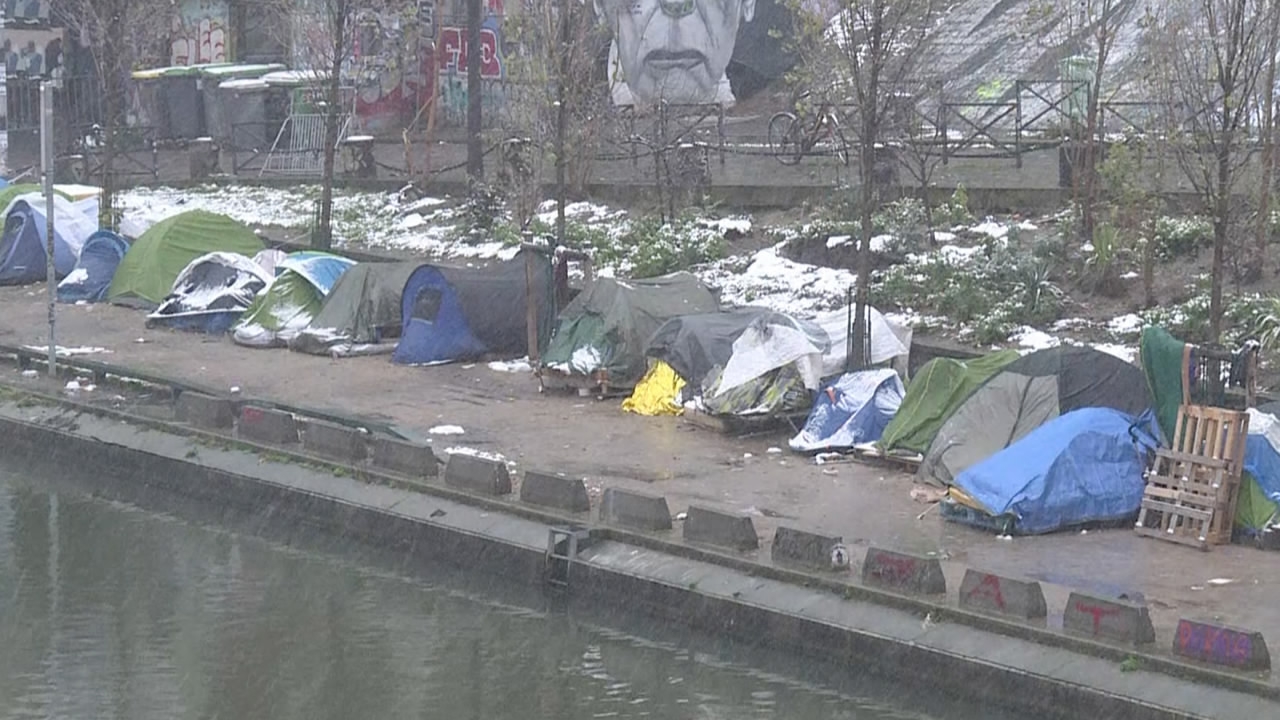
World
18:35, 13-Feb-2018
Hundreds of migrants homeless in Paris as cold snap bites
By Elena Casas

For tourists, it was magical: Last week, the heaviest snow in 30 years coated Paris in layers of white.
But with temperatures falling to minus 10 degrees Celsius, charities grew increasingly worried about the hundreds of migrants camping outdoors in the city.
The informal camps are not as big as they were a year ago, but Doctors Without Borders estimates there are some 1,300 migrants sleeping rough in the city.
“There’s an atmosphere of fear,” Doctors Without Borders’ Corinne Ture explained to CGTN.
“People sleep rough because they’re afraid that if they go into a state-run reception center, they’ll be deported - either to their home country or to the first country where they entered Europe, under the Dublin regulations.”
The French government recently introduced a bill to parliament, due to be voted on in March, that is intended to increase the number of deportations, as well as reduce the amount of time that failed asylum applicants have to appeal the decision.
The administration has meanwhile come under fire for requiring homeless shelters to check the documents and immigration status of everyone staying there.
There also simply aren’t enough beds available in emergency centers - meaning charities like Doctors Without Borders are booking hotel rooms, or relying on volunteers to house refugees in their homes, in order to find people a warm bed for the night.
“There are families with children on the street, which is preposterous, and there are very vulnerable adults,” Ture told CGTN.
“We’ve reserved 50 hotel rooms, and managed to get city hall to make 600 more beds available in emergency accommodation, but it’s clearly not enough.”
Doctors Without Borders estimates 10 to 15 percent of migrants living on the streets are minors - meaning the state has a legal obligation to house them. But 90 percent of those who tell the authorities they are underage are nevertheless being assessed as adults, sometimes even when they have documents to prove their age.
“A lot of them are accused of having false papers,” said Ture. “It shouldn’t be up to asylum administrators to decide whether identity papers are false or not, they should be treated as children until a decision is made by a judge.”
The migrants are very visible on the streets in certain parts of Paris, but they’re just a small fraction of an estimated 28,000 homeless people in the French capital - 50 percent more than 10 years ago. NGOs say the financial crisis of 2008 led to a sharp rise, and numbers have continued to rise ever since.
In July last year, President Emmanuel Macron promised nobody would be sleeping on the streets by the end of 2017. This week, his interior minister Gerard Collomb told reporters that if people were, they had chosen to.
Meanwhile, the snow is forecast to keep falling.
8226km

SITEMAP
Copyright © 2018 CGTN. Beijing ICP prepared NO.16065310-3
Copyright © 2018 CGTN. Beijing ICP prepared NO.16065310-3